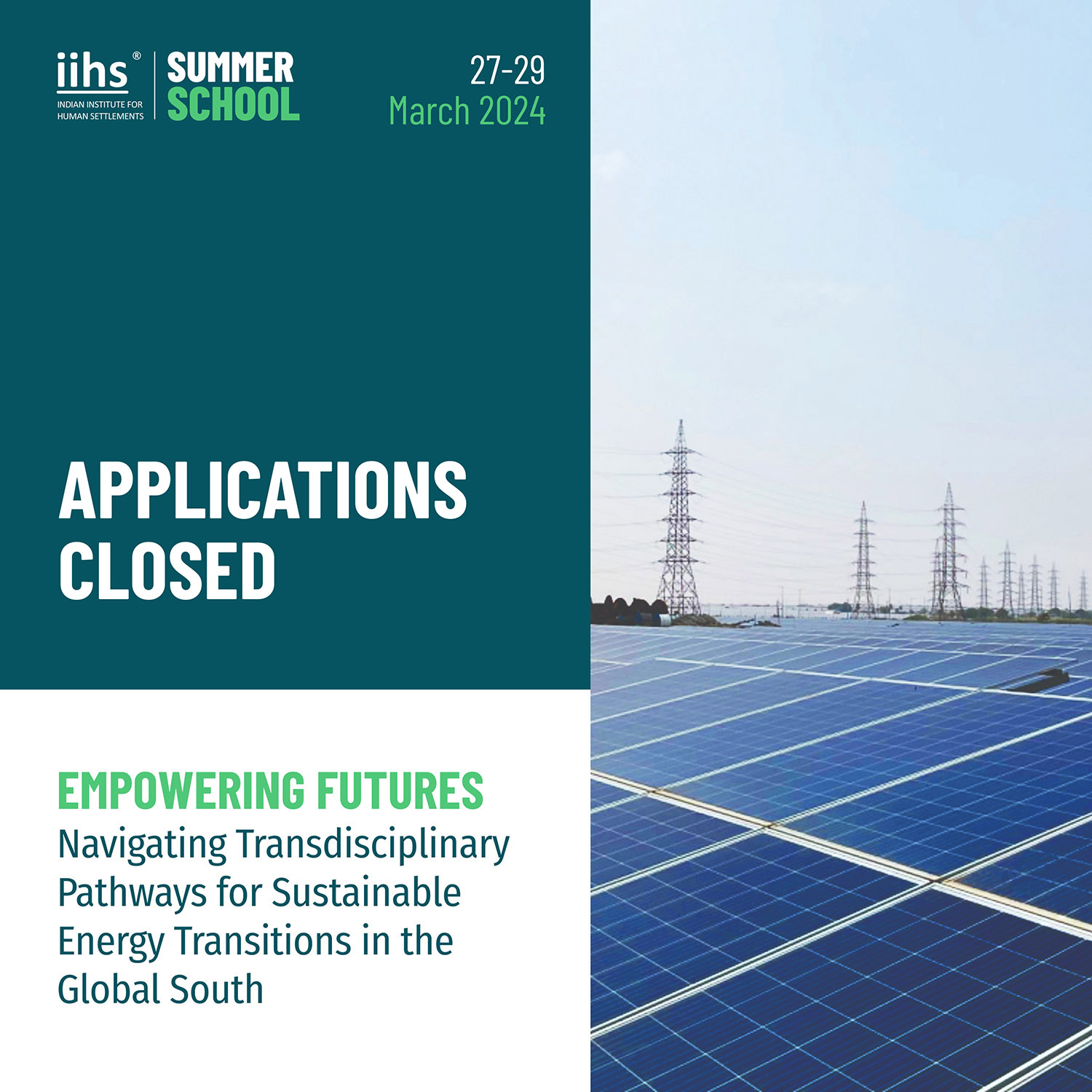Committed to transformative change, the Indian Institute for Human Settlements (IIHS) is hosting a 3-day summer school on ‘Energy Transitions in the Global South’. This initiative is tailored for early career researchers and practitioners in India, including those at the advanced stages of their doctoral program. The summer school aims at fostering a new generation of academic researchers and industry practitioners, equipped to tackle the intricate challenges at the nexus of RE, equity, and institutional dynamics.
Through transdisciplinary engagement, the summer school aims to facilitate knowledge exchange and thereby empower domestic participants with the knowledge and insights necessary to navigate the complexities of energy transitions in the Global South. By providing a platform for collaborative learning and dialogue, the programme aspires to nurture change agents committed to advancing sustainable and equitable energy futures. This summer school draws from and aims to build on our ongoing work on energy transitions, which is focussed on understanding how equity and social welfare can be embedded in energy decision making.
We intend to achieve our shared learning objectives by making use of a mix of interactive seminars; presentations of selected work by participants, as well as feedback sessions on presented work, and guest lectures by academics, practitioners, and other key stakeholders. The sessions will be carefully designed to facilitate mutual knowledge exchange, including dedicated sessions that build on the presented work and locate it in the evolving context of the Global South. We aspire to convert the presented papers into a special journal issue for publication in early 2025. The key themes around which this summer school is framed are as follows.





